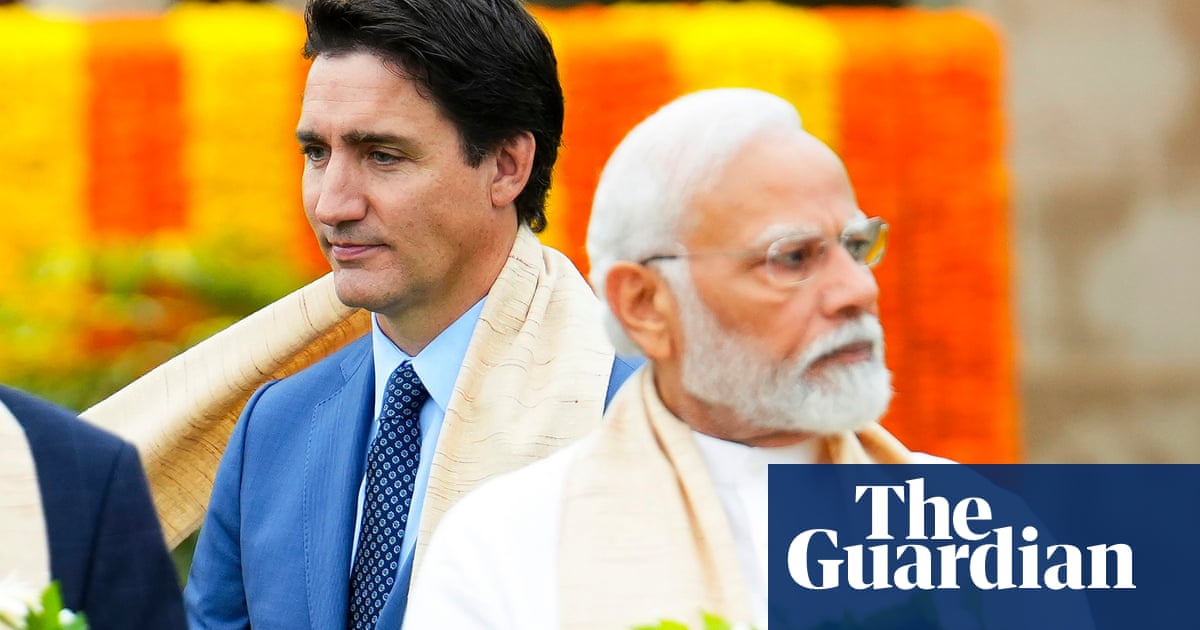World
UK calls for India to cooperate with Canada’s legal process as row deepens

Britain joined its Five Eyes intelligence partners on Wednesday in saying India’s cooperation with Canada’s legal process was “the right next step” in the deepening diplomatic row between the two countries, adding that it had full confidence in Canada’s judicial system.
Canadian police said on Monday they had credible evidence that Indian agents including India’s high commissioner to Canada were linked to the murder of the Sikh leader Hardeep Singh Nijjar on Canadian soil in June 2023 and accused Delhi of a broader effort to target Indian dissidents in Canada.
India has rejected the Canadian accusations and retaliated by ordering the expulsion of six high-ranking Canadian diplomats, including the acting high commissioner.
The British Foreign Office said in a statement: “We are in contact with our Canadian partners about the serious developments outlined in the independent investigations in Canada. The UK has full confidence in Canada’s judicial system … The government of India’s cooperation with Canada’s legal process is the right next step.”
The statement follows a phone call between the UK prime minister, Keir Starmer, and the Canadian prime minister, Justin Trudeau, on Tuesday night. In a statement, Downing Street said the two leaders “discussed recent developments regarding allegations under investigation in Canada. Both agreed on the importance of the rule of law. They agreed to remain in close contact pending the conclusions of the investigation.”
Testifying at a public inquiry into foreign interference on Wednesday, Trudeau called the assassination of Nijjar a “massive mistake” that Canada’s government could not allow to pass without consequence.
“We had clear and certainly now ever clearer indications that India had violated Canada’s sovereignty,” Trudeau said.
But in his most detailed remarks on the saga so far, Trudeau said Canada did not want to “blow up” a valuable relationship with India.
He said India was hosting a G20 summit when Canadian officials reached out to their Indian counterparts to discuss the killing. Officials working “behind the scenes” told the Indians “there are real concerns your security agencies were involved in the killing” of Nijjar, he said.
When Trudeau confronted Modi on the final day of the summit, he was told by the Indian prime minister that Canada should do more to crack down on Sikh separatists. Despite efforts to engage with Indian officials, Trudeau said they appeared uninterested in “taking the off-ramp” offered.
Canada’s foreign minister, Mélanie Joly, had said she was reaching out to rally diplomatic support from its Five Eyes intelligence partners: the US, New Zealand, the UK and Australia. The UK will be trying to balance the close trade ties it has with India and the need to support Canada.
Last year Sikh activists in the West Midlands were handed “threat-to-life” warnings amid growing concern about the safety of separatist campaigners whom Sikhs claim the Indian government is targeting.
Three members of a family received warnings from West Midlands police in March, meaning there was intelligence of a death threat or risk of murder but not enough evidence to justify an arrest.
A spokesperson for West Midlands police said at the time: “We received information that suggested that members of a family may have been at risk of harm.”
New Zealand’s foreign minister, Winston Peters, suggested he would let the judicial processes unfold, in a statement that did not mention India. “The alleged criminal conduct outlined publicly by Canadian law enforcement authorities, if proven, would be very concerning,” Peters wrote on X, saying Ottawa had highlighted “ongoing criminal investigations into violence and threats of violence against members of its south Asian community”.
The US state department spokesperson, Matthew Miller, would not comment on the substance of the new claims at his daily briefing on Tuesday, but said “they are serious allegations and we have wanted to see India take them seriously and cooperate with Canada’s investigation. They have chosen an alternate path.”
after newsletter promotion
Australia’s foreign affairs department said: “Australia has made clear our concerns about the allegations under investigation in Canada, and our respect for Canada’s judicial process. Our position of principle is that the sovereignty of all countries should be respected and that the rule of law should be respected.”
The Australian prime minister, Anthony Albanese, refused to answer any questions on the India-Canada diplomatic row during a press briefing on Tuesday.
The allegations have been broadening, making it difficult for the Five Eyes partners to ignore the evidence. Canadian police now claim that Indian diplomats have worked with criminal gangs to orchestrate a wider campaign of extortion, intimidation and coercion against members of the Canadian south Asian community, resulting in homicides, home invasions, drive-by shootings and arson.
An Indian delegation visited Washington to discuss a related alleged murder-for-hire plot that US officials revealed last November.
An unsealed indictment alleged that an Indian government employee had directed an attempted assassination of the Sikh separatist Gurpatwant Singh Pannun in the US, and spoke about others, including Nijjar.
Miller said the visit by what he called the Indian inquiry committee, announced on Monday, was unrelated to the allegations made public by Canadian authorities that same day, calling the timing “completely coincidental”.
The UK has its own diplomatic battle with India over the continued detention of Jagtar Singh Johal, a British man who has been held in India since 2017 and faces a possible death sentence.
In May 2022, the UN working group on arbitrary detention concluded that under international law Johal’s detention was arbitrary and had no legal basis.
The UK Foreign Office issued a statement criticising India in October 2023 for seeking to expel 41 Canadian diplomats without first declaring them persona non grata, a breach of article 9 of the Vienna convention.









